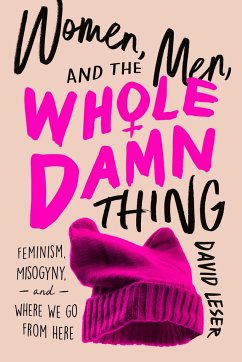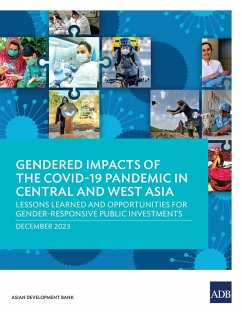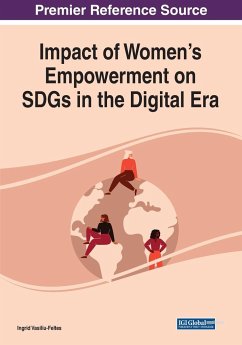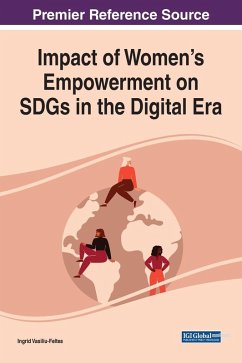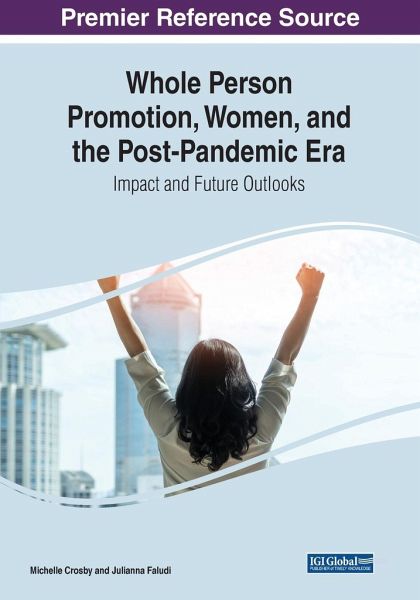
Whole Person Promotion, Women, and the Post-Pandemic Era
Impact and Future Outlooks
Herausgeber: Crosby, Michelle; Faludi, Julianna
Versandkostenfrei!
Versandfertig in 1-2 Wochen
151,99 €
inkl. MwSt.

PAYBACK Punkte
76 °P sammeln!
The COVID-19 pandemic both accelerated social and household inequalities and made them more visible as the spatial and social divide between work and home life was broken down. Historically, during times of crisis or huge systematic change, women have served as shock absorbers. Shock absorption of systemic change by women, as well as that of our planet's natural resources, is not a new phenomenon, and this dynamic persisted even during state socialism; however, in the current institutional setups, there seems to be no logical solution because of the orientation around marketization and externa...
The COVID-19 pandemic both accelerated social and household inequalities and made them more visible as the spatial and social divide between work and home life was broken down. Historically, during times of crisis or huge systematic change, women have served as shock absorbers. Shock absorption of systemic change by women, as well as that of our planet's natural resources, is not a new phenomenon, and this dynamic persisted even during state socialism; however, in the current institutional setups, there seems to be no logical solution because of the orientation around marketization and externalization by central actors. Currently, during a time of great precarity in our "digital revolution," old institutions are still counting on women, the planet, and other vulnerable groups to support this transformation, with no clear protection of "whole personhood." Whole Person Promotion, Women, and the Post-Pandemic Era: Impact and Future Outlooks provides the latest empirical research findings in the post-pandemic era with the household as the central unit of analysis. It improves understanding of how old institutions persist and are even reinforced during times of crisis as well as generates a discussion about to what extent there is variation in experiences, how satisfied we are with these dynamics, and what internal and external interactions we can attribute to the world that we envision. Covering topics such as individual wellbeing, platform capitalism, and gender inequality, this premier reference source is a dynamic resource for lawyers, policymakers, government officials, politicians, business leaders, managers, economists, non-profit organizations, libraries, students and faculty of higher education, sociologists, anthropologists, researchers, and academicians.






